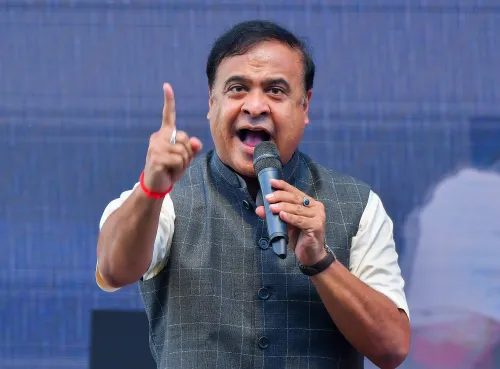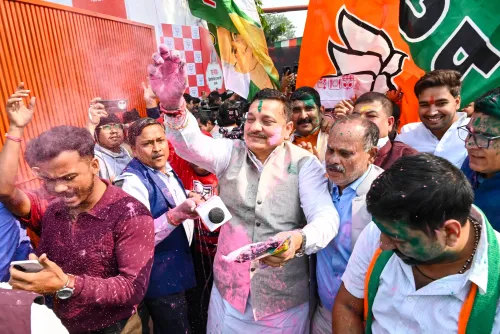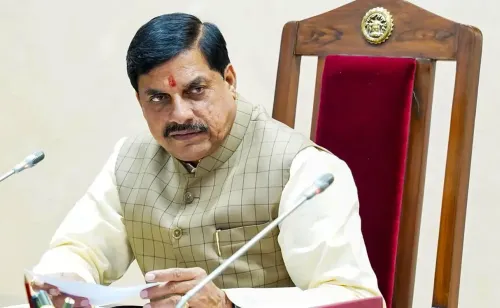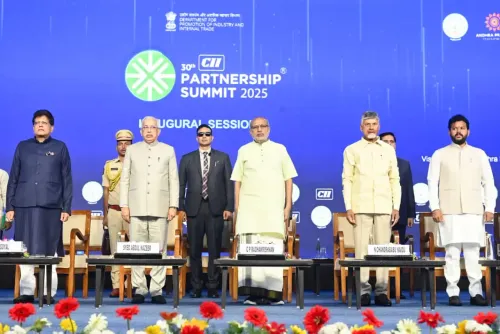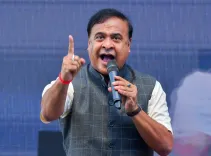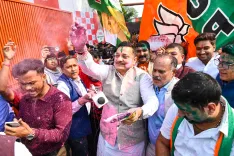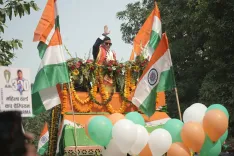What Measures Are Being Taken to Combat Toxic Air in Delhi?
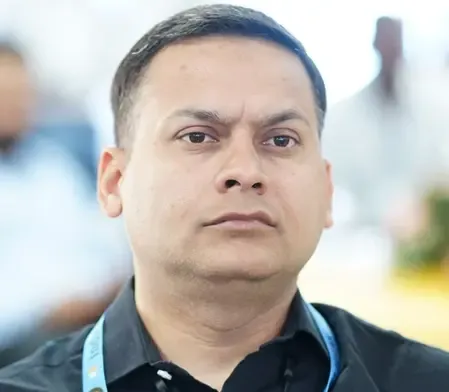
Synopsis
Key Takeaways
- Delhi's air quality is threatened by potential farm fires in Punjab.
- Political leaders are urged to take immediate action for public health.
- Technological interventions are being explored by the Delhi government.
- Supreme Court's involvement highlights the seriousness of the situation.
- Collaboration across states is crucial for effective solutions.
New Delhi, Sep 30 (NationPress) The BJP raised concerns on Tuesday regarding potential farm fires in Punjab in the forthcoming months and their adverse effect on the air quality of Delhi. They urged AAP National Convenor Arvind Kejriwal to address this pressing issue immediately.
Amit Malviya, who oversees the BJP's National Information and Technology Department, posted on X, "Arvind Kejriwal and Punjab CM Bhagwant Mann must take urgent action regarding the farm fires before Delhi and the entire NCR begin to suffocate once more. Public health and clean air are urgent matters. The responsibility rests with the AAP."
This statement from Malviya arises at a moment when former Delhi CM Kejriwal and his party-led government in Punjab have asserted that the stubble burning in Punjab has little to do with the worsening air quality in Delhi during winter.
The BJP and the AAP have engaged in a verbal conflict for nearly a decade regarding Delhi's hazardous air and its connection to the farm fires in Punjab, with the BJP accusing Kejriwal of shifting his position on the relationship between stubble burning and Delhi's polluted air.
Recently, Delhi Chief Minister Rekha Gupta criticized the prior AAP administration, alleging a multi-crore scam linked to their bio-decomposer initiative aimed at managing farm waste in the city.
Back in 2018, when Kejriwal was serving as Delhi's Chief Minister, he condemned stubble burning in Punjab for the surge in Delhi's air pollution that typically begins in October.
Fast forward five years, once the AAP took charge in Punjab, Kejriwal claimed that significant steps were implemented by the state government to curb stubble burning, which he believed lessened the chances of farm fires impacting Delhi's pollution levels.
Last year, the Supreme Court admonished the Punjab and Haryana governments for their half-hearted efforts to eliminate farm fires, labeling them as "mere eyewash".
The apex court also interrogated the state governments regarding the insufficient prosecution of farmers who breach the law against stubble burning.
Moreover, the court criticized the Union government for having "toothless" environmental regulations, noting that laws intended to combat pollution, specifically the Commission for Air Quality Management (CAQM) Act of 2021, were established without the necessary administrative framework to ensure effective enforcement.
In response, the BJP-led Delhi government is set to conduct a specialized study on 'smog-eating' photocatalytic coatings applicable on roads, concrete, and tiles to diminish NO2 and harmful hydrocarbons.
Environment Minister Manjinder Singh Sirsa, in a recent directive, instructed the Environment Department to formulate an action plan aimed at enhancing the city’s defenses against air pollution through technology-based solutions and scientific validation.
“Delhi will assess and implement the best proven photocatalytic technologies, emphasizing safety, sustainability, and quantifiable impact to achieve cleaner air more rapidly,” stated Sirsa as he announced a memorandum of understanding with IIT-Kanpur to trial artificial rain.
Sirsa emphasized, “The battle against pollution in Delhi is personal — it affects every child, every elder, every laborer — and we are deploying straightforward, safe, science-based tools, openly measuring results, and swiftly scaling up wherever families can perceive a difference in the air they inhale.”

